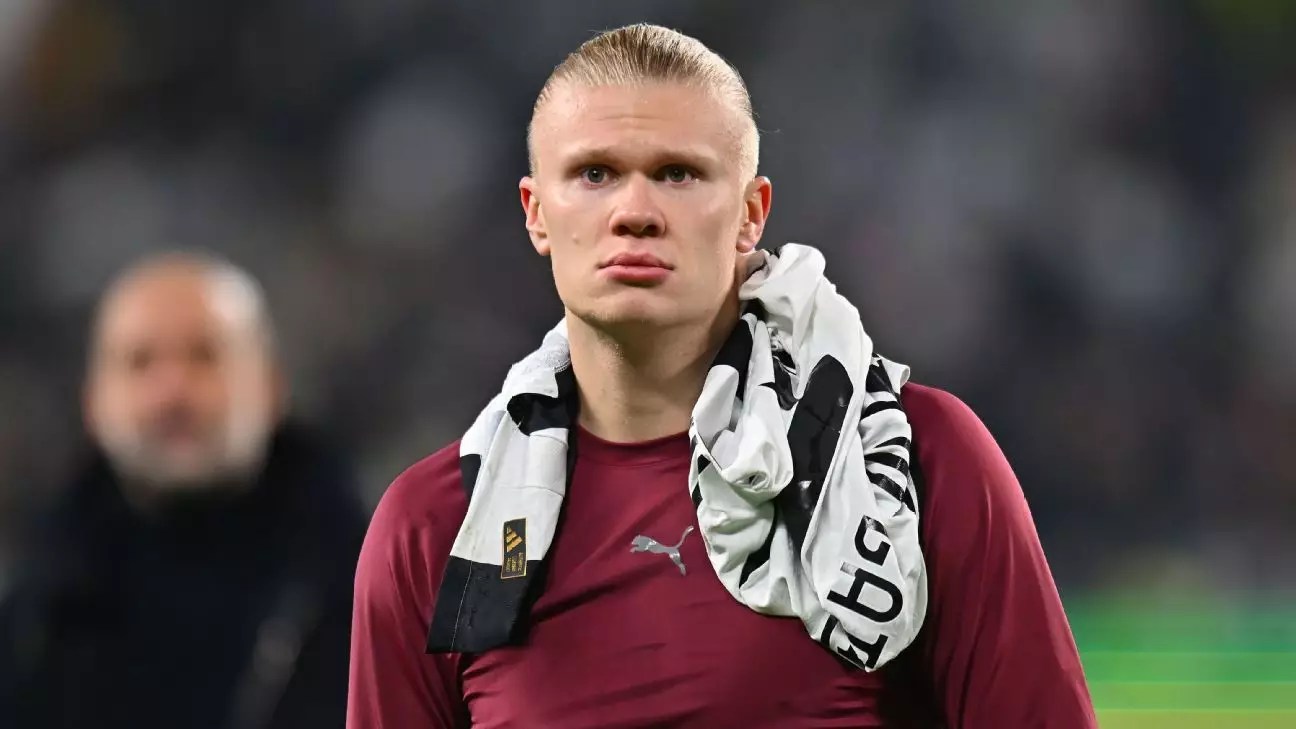The UEFA Champions League is famed for its ability to showcase the best clubs in Europe, providing an exhilarating football experience. As we dissect the implications of Matchday six for the 2024-25 season, we find intrigue and drama unfolding, particularly as teams vie for the coveted top positions in the standings. With stars like Michael Olise, Julián Álvarez, and Jhon Durán leaving fans spellbound through their extraordinary goals, questions of form, tactics, and managerial pressures come sharply into focus.
Manchester City, under the guidance of Pep Guardiola, has faced a sobering reality following their 2-0 defeat to Juventus. This setback has not only jeopardized their chance of advancing but has left their campaign hanging by a thread. The upcoming match against Paris Saint-Germain (PSG) promises to be a crucial encounter, and the stakes have never been higher. City might still hold their fate in their hands, but it remains a precarious position. The challenge actually lies more with PSG, who must combat the inconsistency plaguing their own season. If they fail to secure points in their next game against VfB Stuttgart, their chances of progression could evaporate entirely.
The contrast between City’s trajectory and PSG’s predicament is stark. As much as fans may regard these matchups as titanic clashes, the underlying narrative hints at a deeper issue of consistency and adaptability among Europe’s elite. The dramatic fluctuations in performance can create a captivating story, yet they also pose significant risks for managers like Guardiola, who will need to navigate both domestic pressures and international ambitions simultaneously.
Liverpool’s resounding success in the league phase thus far positions them as one of the standout teams in the competition. Under manager Arne Slot, they have displayed adaptability and tactical ingenuity, even if they have not always played to their full potential. However, the road ahead carries its own set of challenges. Questions loom over how the squad will manage a potentially exhausting schedule in the Premier League while pushing to secure Champions League glory.
Slot’s transparency about the squad’s performance showcases a keen awareness of the hurdles that lie ahead. The fact that they managed a narrow win against Girona yet were still “outplayed” at times suggests underlying vulnerabilities that opponents might exploit. For Liverpool, achieving such a flawless league phase is commendable but does not guarantee success in the knockout stages, a fact that compounds the existing pressure.
As they aim for greater heights, the performance of pivotal players like Ryan Gravenberch and Mohamed Salah will prove decisive. Salah’s influence on the team’s attacking front is undeniable, and the potential fallout from his absence due to injury could have dire consequences. Striking the right balance between maintaining peak performance and rotating the squad will be critical for Liverpool as they forge ahead.
One of the undeniable highlights of Matchday six has been the individual showcases of talent that ignite discussion among fans and pundits alike. Michael Olise’s sublime solo goal stirs the debate regarding the best performances of the week. That spectacular effort, which saw him effortlessly maneuver past multiple defenders, epitomizes the kind of skill that can elevate a match. Comparisons often arise between breathtaking strikes, but Olise’s brilliance has set a high bar even amid contentious defensive performances.
While Julián Álvarez and Jhon Durán contributed equally stunning moments to the narrative, assessing their quality merits taking a broader perspective. Individual exploits may dominate the conversation, yet they also underscore the importance of robust defensive strategies. The context of defensive performances plays a substantial role in which goal becomes iconic or memorable, meaning we must appreciate both elements equally.
Looking beyond the towering giants of European football, the issue of dark horses remains a tantalizing subplot in this season’s Champions League narrative. As analysts sift through the teams that could disrupt established powerhouses, Bayer Leverkusen and Atalanta emerge as credible contenders. Their respective resilience and tactical setups position them well to challenge the front-runners.
Bayer Leverkusen has proven that they are capable of competing with Europe’s finest, despite their slip-ups and inconsistency. Likewise, Atalanta excels in the unpredictability of knockout football, making them a formidable opponent for anyone. Their performance hinges on tactical discipline and the capacity to exploit any lapses among more established teams.
The dramatic dynamics of Matchday six reveal the multifaceted complexities of the UEFA Champions League. The juxtaposition of established clubs grappling with unpredictabilities while promising talents dazzle highlights the essence of this storied competition. With only a few matches left in the league phase, the excitement is palpable, a fitting prelude to the knockout rounds that await. Fans can only hope for visionaries like Guardiola and Slot to deliver captivating football amidst the mounting pressures of European excellence.


Leave a Reply